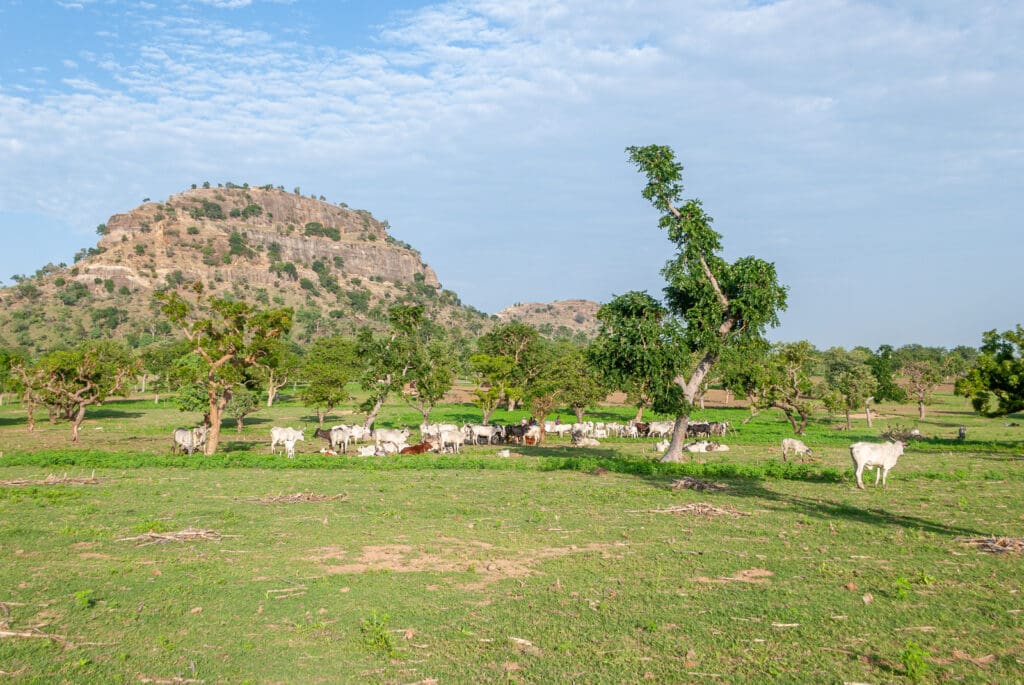Djalingo Tchoumpa 1 village lies in the Bénoué Valley, 15 km south of the city of Garoua, the capital of the Northern Region in Cameroon. Its inhabitants are Fulani herders, a nomadic people from Nigeria who settled along the lush banks of the Bénoué River more than 45 years ago.
In this community, raising cows, sheep, and goats has always been the main source of livelihood. Cows, in particular, constitute most of the wealth. They are a valuable food source and define the social status of those who own them. The lives of these herders are inextricably linked to the welfare of their animals. For decades, the environment in which to live has been chosen based on the possibility of feeding the livestock and crossing national borders or geographic spaces in search of the best pastures.
With time, however, things have changed. The degradation of transhumance routes, strong population growth, the reduction of grazing areas, and the negative effects caused by climate change gave rise to numerous conflicts over the resources still available on this land. Breeders, farmers and other stakeholders began to compete for water and pastureland. Before long the situation worsened. There were frequent cattle thefts and kidnappings of ranchers. Thus, to avoid further problems, Fulani herders decided to settle in Djalingo Tchoumpa 1 and adapt their herding practices to this new sedentary lifestyle.
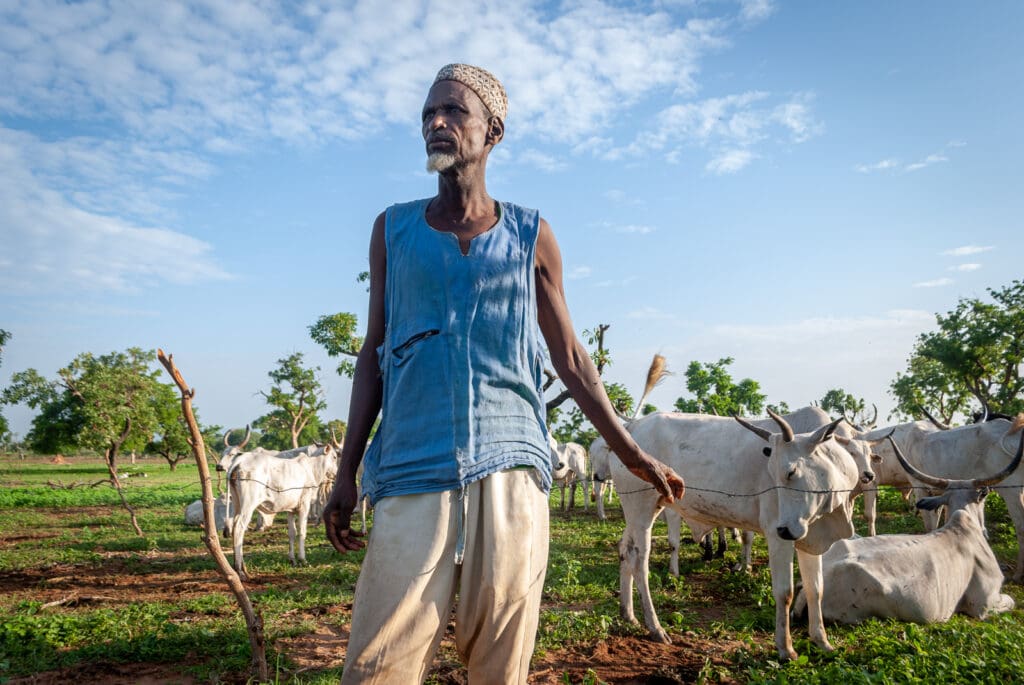
The practice of pastoralism
Djalingo Tchoumpa 1 is a cluster of huts made of clay with thatched roofs, scattered among fields and pastures. The daily life of these herders is conducted at the pace of the laws of the Islamic religion.
In the rainy season, just after the first prayer of the day, the men round up the cattle. First, the cows are milked. Then, all the animals are taken to dedicated grazing areas located just outside the village to prevent grazing by these animals from destroying the crops being planted. At the beginning of the dry season, however, the animals are left to roam on the crop residue in the village fields. When grass begins to become scarce, shepherds take the cows to graze in forage areas along the banks of the Bénoué River. And every night, the herders bring the cows back to the village to spend the night.
To ensure their food security, some farmers cultivate grains, especially maize and sorghum. Cultivation is done using rudimentary tools, including a plough pulled by the strongest calves. The animals used in farming receive a daily supplementary ration of food to keep them strong. These animals will then be sold after three seasons of work.
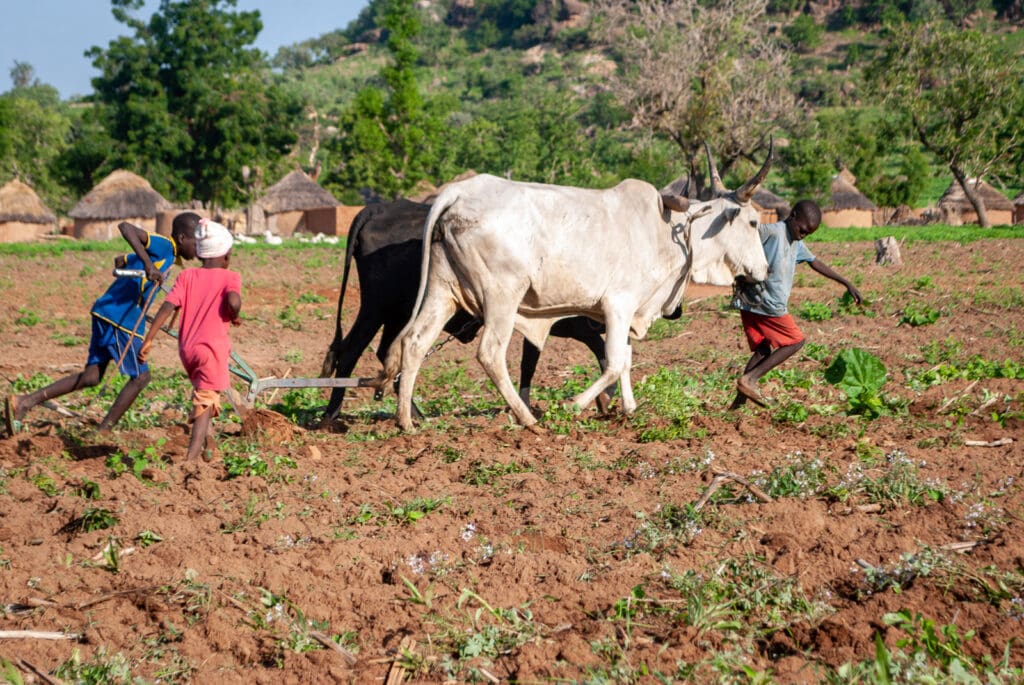
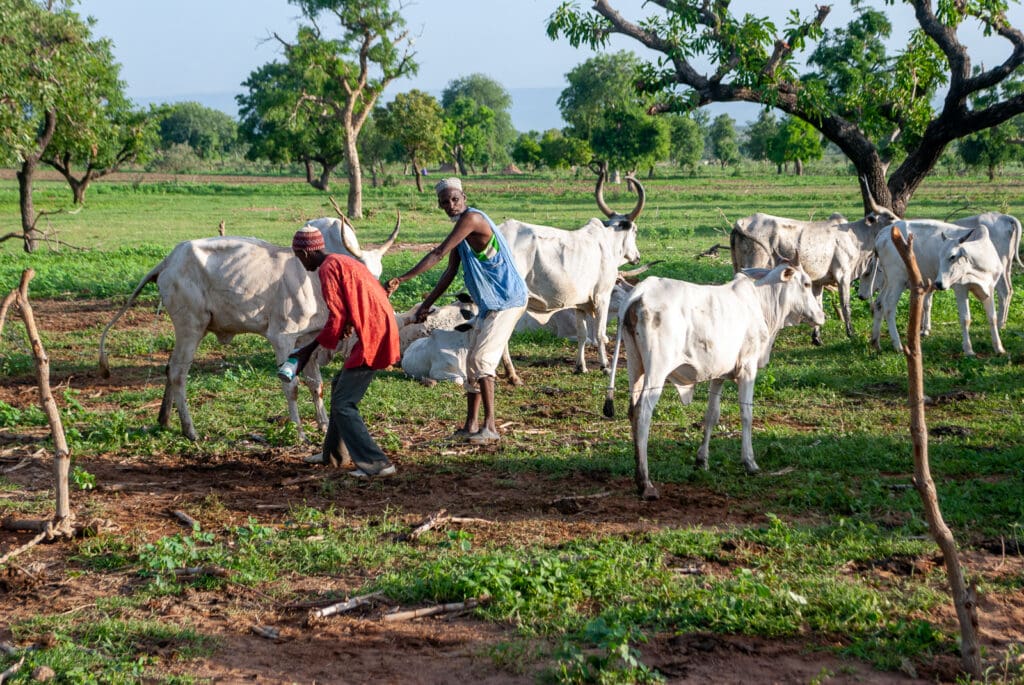
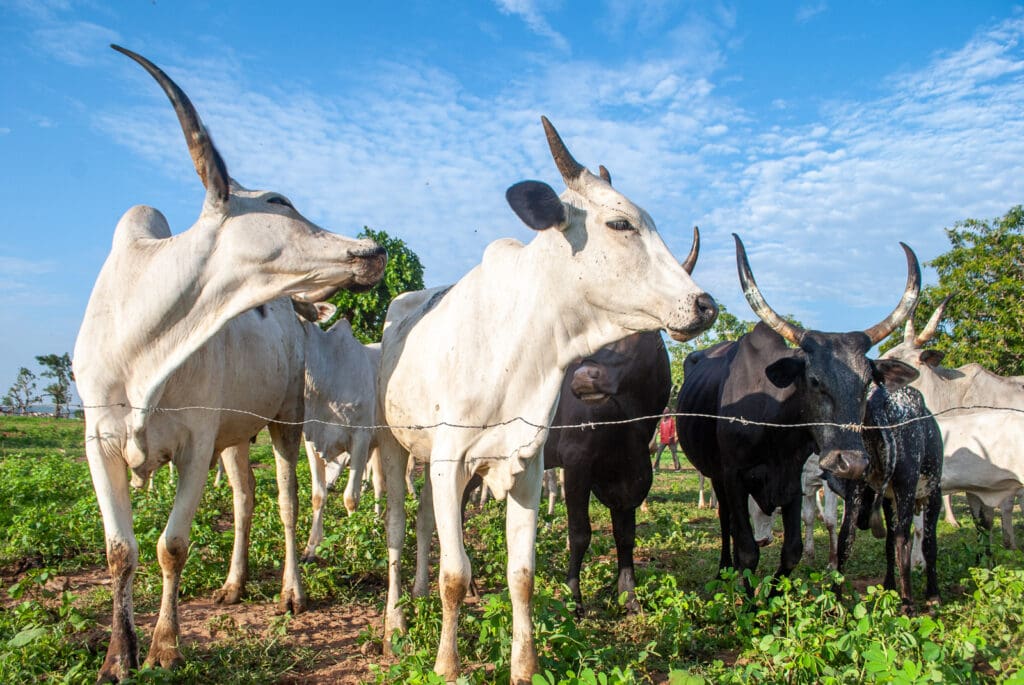
Young people facing the challenges of cultural and civic realities
The children of Djalingo Tchoumpa 1 live in an environment of fullness and freedom. They actively participate in all community activities. Their days begin with Djanguirde – the study of the Koran. Then they perform some household tasks (collecting wood, carrying milk, etc.), before going to the only elementary school in the village. Despite the difficult conditions, the boys and girls of this village engage in study daily. But unfortunately, not all of them succeed in continuing their education. The absence of desks, the shortage of school supplies and the lack of birth certificates for so many of them are among the main factors that explain the high dropout rate. Most of these young people thus decide to return to pastoral activities or take up survival jobs, such as being labourers or motorcycle taxi drivers, with the hope of one day improving their living conditions.
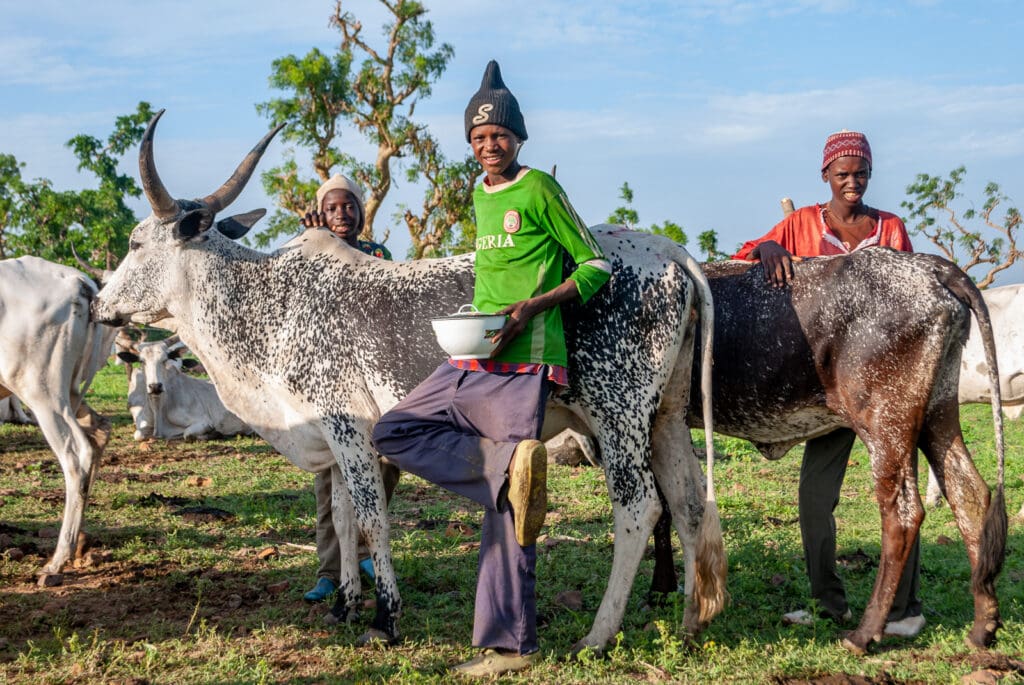
The role of women in the village
Women in the village are mainly involved in domestic and economic subsistence activities for their families. They prepare meals, care for their children, and process and market milk, one of the main sources of regular income for families in this village. Once a week, the women go to the market in Garoua town to sell their products. These include Kossam – simple curdled milk – and Dakeré, a yogurt with the addition of sweet potato semolina. Proceeds from these sales are used to purchase necessities not available in the village, such as salt, sugar, soap, and spices.
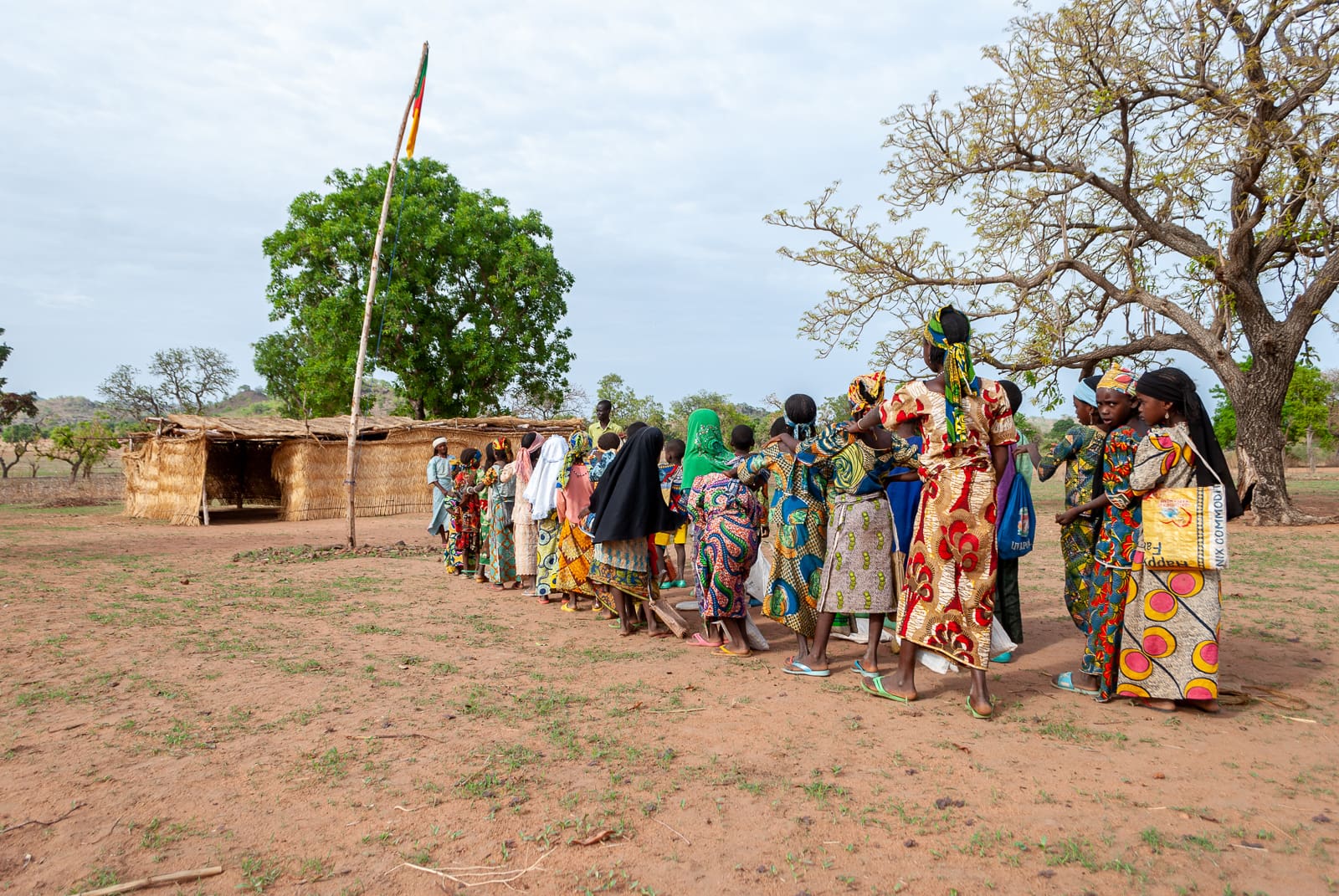
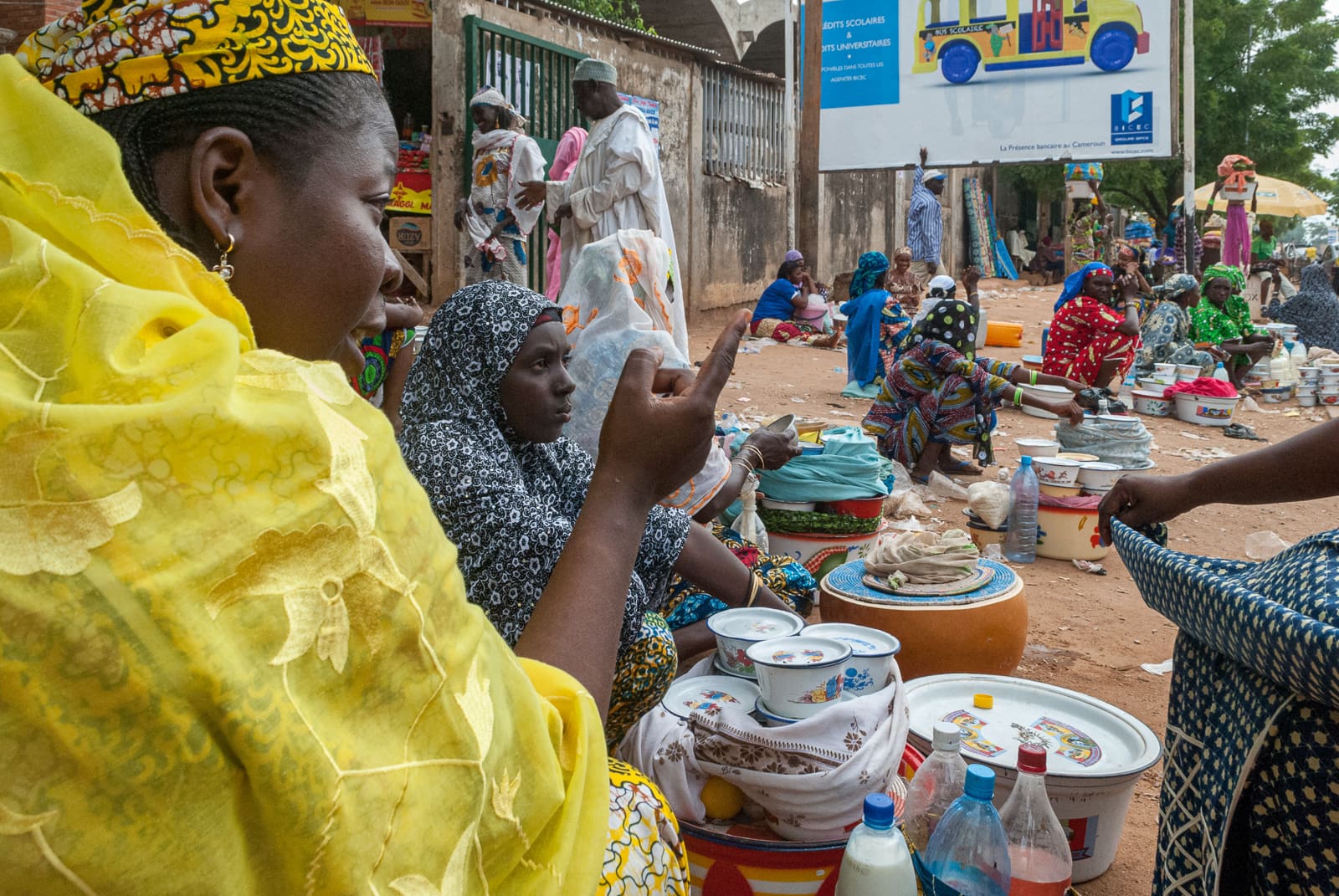
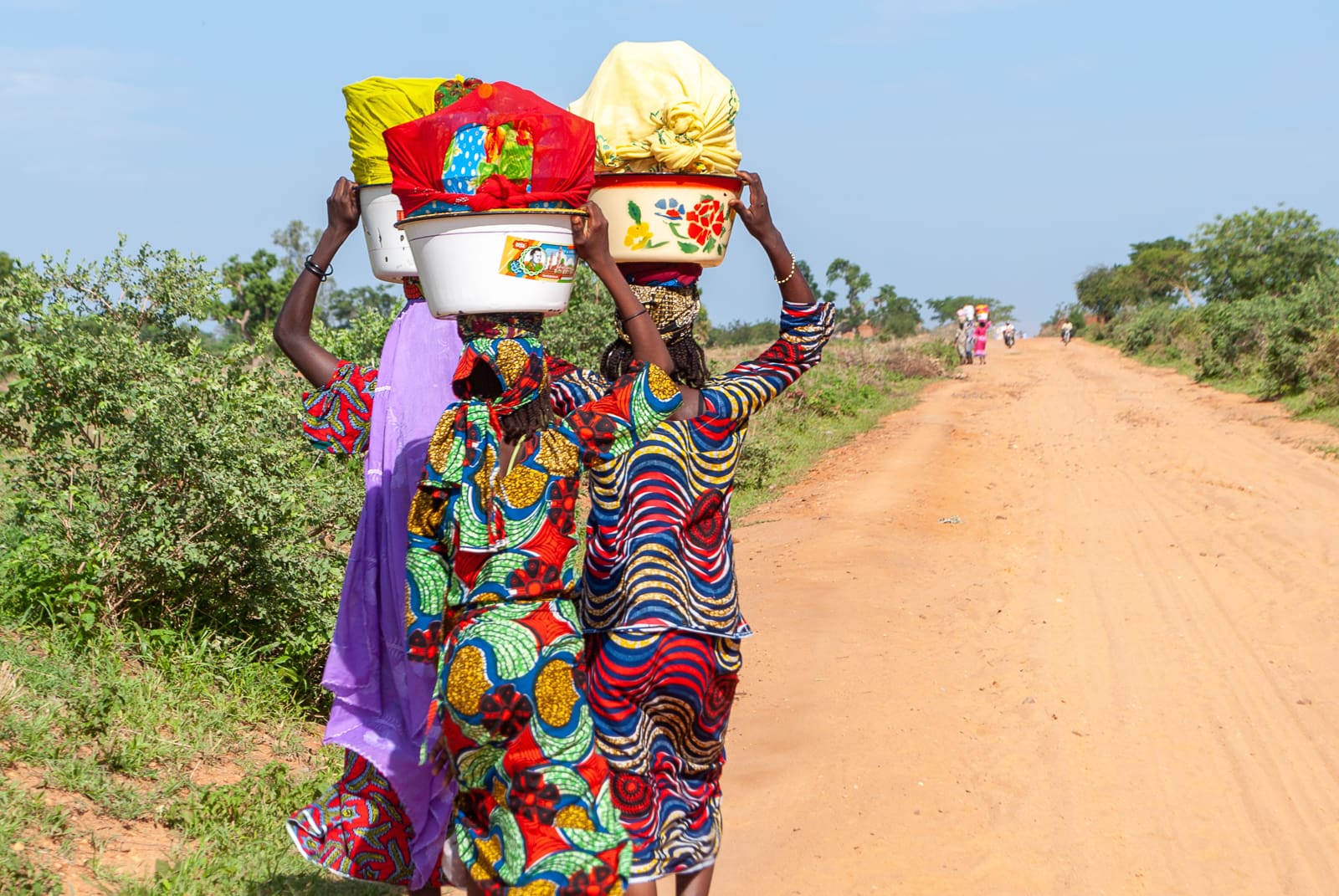
An uncertain future
The inhabitants of Djalingo Tchoumpa 1 find themselves at a crossroads. Their existence, rooted in millennia-old traditions and strongly tied to the land, is destined to collide with the sudden changes of the contemporary world. And during these changes and the uncertainties of the coming tomorrow, there is one thing the inhabitants of Djalingo Tchoumpa 1 can count on that represents their “being”: life goes on, one step at a time. Even in these places.
